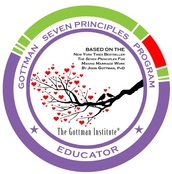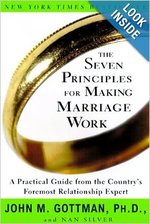Couples Therapy
In the “Love Lab,” Gottman's researchers found they can predict with 94% accuracy whether a couple will thrive or fail after watching and listening to them for as little as just a few minutes. The Love Lab is Dr. John Gottman’s Relationship Research Institute in Seattle. Gottman and his team, for over 30 years have been studying how thousands of couples argue and resolve conflict and have followed couples over time to see if their marriages last. Using a scientific approach, they have found four negative factors that can predict divorce and seven positive principles that predict marital success. (Read more about Gottman's RESEARCH here).
|
Save time and money in therapy by completing the relationship check up. These questionnaires are those I usually ask you to fill out in session. You can take the time now to fill them all out and by doing so you will build some insight into yourself, your relationship, your needs, and your goals.
To complete the check-up just REQUEST AN ASSESSMENT (below). Send me your first and last names and your email addresses. I submit the request and your assessment will be emailed to you to complete. The assessment fee is $39 per couple. This will save you at least 2 hours worth of therapy fees ($200 or more). For more information about the assessment process read the FAQ.
|
Gottman's Seven Principles
I am trained in Gottman Method Couples Therapy, Level 3, and I am an approved Gottman Seven Principles Educator. I rely heavily on this scientific model for relationship improvement, both as a therapist and as a Seven Principles educator. I also offer group and private classes that will guide you through the Seven Principles of Making Marriage work....based on Dr. John Gottman's book by the same name. This is a great training for all couples, married or not!
Please contact me for information about training your group or check back for upcoming training sessions and couples retreats!
|
|
|
The Gottman Model has been around for years. I remember seeing the 20/20 episode (below) back in 1993. I was fascinated by it then and still admire, so much, Gottman's research today! |



